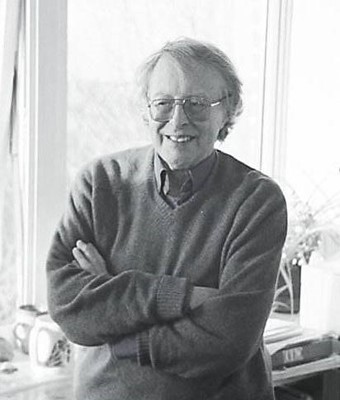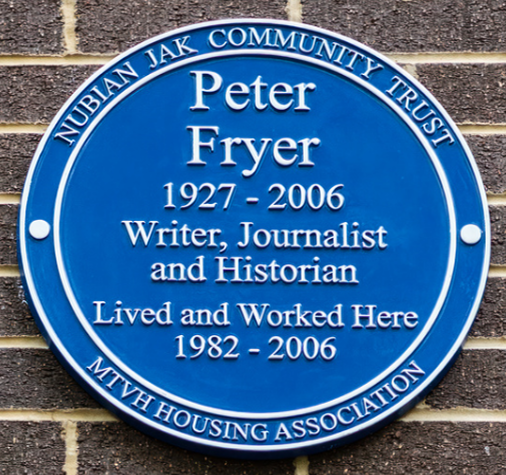
Peter Fryer
In 1984, Pluto Press published Staying Power, a tome about the Black presence in Britain; its author was Peter Fryer, and the book became an immediate bestseller.
What was unusual about Staying Power was its timing, launched when race relations in Britain were being examined through the prism of riots and police brutality. The postwar immigrants from the Caribbean had given birth to children who needed to understand Britain as their home. This was their history that was rarely taught, shared, barely known.
Born in 1927, Peter Fryer left school as a young man to become a daily reporter and member of the Communist Party of Great Britain (CPGB). He was sent as a journalist to cover the 1956 Hungarian Revolution. His honest reporting of the revolution, an uprising against the Stalinist regime in Hungary, led to his expulsion from the CPGB. This pivotal event marked a shift in his career, as he focused more on his role as a journalist and writer, eventually leading to his most renowned work, Staying Power. Staying Power was not just a book; it was a source of empowerment for many Black Britons and an eye-opener for the rest of British society.
From the book’s first page, Fryer boldly asserted that African people were in Britain before the English arrived. He then took the reader on a 655-page journey from the Roman conquest to the kingdom of Henry VIII, reintroducing names now familiar, like Mary Seacole and Olaudah Equiano. By including people of colour in the British story, Fryer was able to offer an effective antidote to a racist and nationalist agenda which was prevalent in the 1980s and has emerged again in light of Brexit and the Windrush scandal. Staying Power, a testament to Peter Fryer's profound understanding of British history, was written while he lived at 64 Shepherd’s Hill in Highgate.
Seventeen years after his passing and thirty-nine years since the book was first published, Staying Power continues to be the best-selling book published by Pluto Press, a testament to its enduring relevance and impact.
To honor the life and times of Peter Fryer, a blue plaque, a symbol of historical significance, was placed at the address where he lived when completing Staying Power. The plaque was installed thanks to a partnership between Nubian Jak Community Trust and MTVH Housing Association. Peter Fryer was an MTVH resident, and his family continued to live in the same home. MTVH proudly has its roots in providing good quality homes to members of the Windrush generation, who often faced squalid conditions and discrimination on arrival in Britain.
“Peter’s children remember him showing them a blue plaque for the first time. They said one day he might have one of his own. How we all laughed! Peter spent his life as a political activist and writer, exposing and resisting all forms of fascism and racism. As a family, we are delighted and proud that his life and work are being publicly recognised in this blue plaque.” The Fryer Family
“I remember when I first started researching information for the board game Nubian Jak, it was to Staying Power that I turned. It remains, still, one of the most important books ever written about the Black presence in Britain”.Dr Jak Beula, CEO of Nubian Jak Community Trust
“It has been a huge honour for Pluto Press to be the custodian of Peter Fryer’s massively influential, pioneering work on the history of Black people in Britain for almost 40 years. It has been wonderful to hear firsthand from so many people who have had their eyes opened to a largely hidden side of British history through reading Staying Power, both from hundreds of ordinary readers and from a more recent generation of distinguished writers who have been inspired by Fryer’s work, like David Olusoga, Paul Gilroy, Stella Dadzie and Gary Younge. It is fantastic that Fryer is now being formally recognised for the outstanding historian that he undoubtedly was through this blue plaque organised by the Nubian Jak Academy”. David Castle, Editorial Director, of Pluto Press
“Today’s ceremony and the blue plaque itself are a real source of pride for MTVH and a fitting way for us to mark Windrush 75. It is wonderful to know that a writer of Peter Fryer’s calibre wrote a seminal book on the story of people of colour in this country while living in one of our homes. It further enhances our organisation’s heritage firmly rooted in housing the Windrush generation. We are also delighted that Peter’s family continue to live here and that we have been able to serve multiple generations of the Fryer family.” Geeta Nanda OBE, Chief Executive of MTVH

